Clearing Up The Smoke: Myths And Facts About Weed
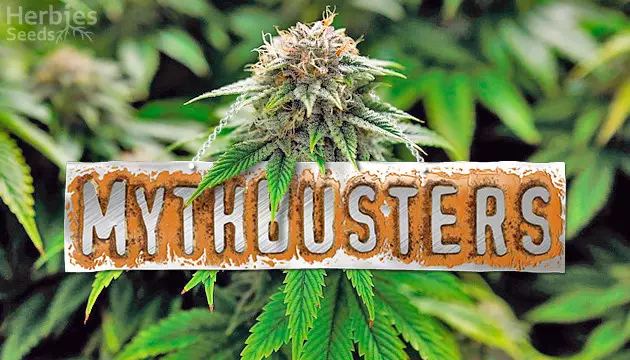
Myths about marijuana are relatively new, but the plant itself has a rich history. Cannabis Sativa L. has been a part of ancient medicine and was a common ingredient in over-the-counter drugs up until it was vilified and eventually banned in most countries. Since then, educators and law enforcement have done everything they could to present cannabis as a dangerous and addictive substance. Luckily, we now know that most cannabis propaganda is exaggerated at best and utter nonsense at worst. Continue reading as we debunk some of the more common cannabis myths one by one.
Myth: Raw Marijuana Can Make You High
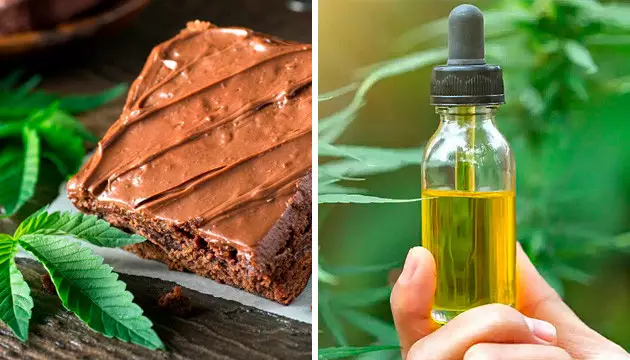
Edibles and oils are popular ways to use marijuana, but the way they work isn't as simple as just throwing some weed into your recipe. You simply can't get high from raw cannabis.
Fact
There's a reason we have to burn dry herb to smoke* it. Tetrahydrocannabinol (THC) doesn't even exist in raw weed. Instead, it sits in an inert form called tetrahydrocannabinolic acid (THCa).
Through heat application, THCa undergoes a process called "decarboxylation," causing a chemical reaction that makes THC psychoactive.
That doesn't mean raw weed is useless. THC a still has medical benefits, as do the (at least) 112 other cannabinoids found in hemp or marijuana. The plant itself is also really nutritious.
Myth: Marijuana Ruins Sex
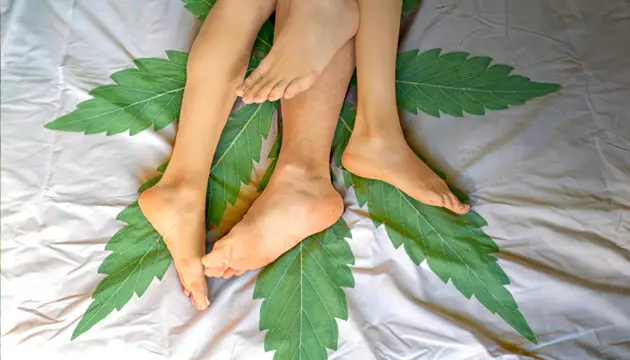
One way educators love to present interesting facts about marijuana (especially to teenagers) is to pull the "sex" card. Teens don't want to engage in anything that might ruin their ability to have sex or enjoy it.
Fact
Of course, there's no evidence that marijuana makes sex terrible. If anything, it's just the opposite. In fact, correctly-dosed marijuana can improve sex life by eliminating any bedroom-related anxiety and stimulating the drive for experimentation.
Myth: Pot Smoke Is Worse Than Cigarette Smoke
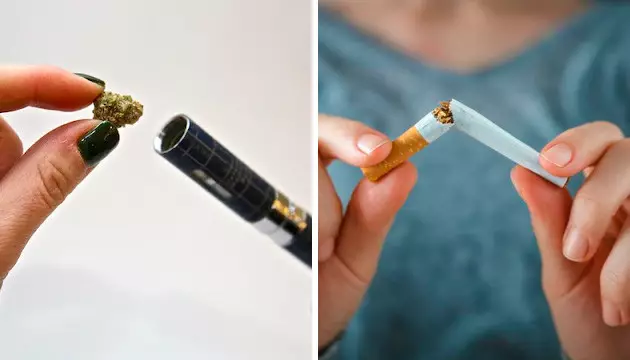
You don't have to be a doctor to know that smoking is unhealthy. Unfortunately, this has led many health officials to claim that pot smoke is just as bad or even worse.
Fact
One of the fun facts about marijuana is that, despite the lack of a filter or even regulation in many states, marijuana smoke doesn't contain the thousands of chemical compounds found in tobacco. Still, it can have a negative impact. For instance, people who frequently smoke marijuana make themselves more susceptible to infections such as bronchitis. Those who choose to inhale THC should therefore opt to use a dry herb vaporizer, which doesn't require combustion.
Myth: Weed Always Makes You Hungry Or Giggly

Watching stoners on TV or in movies, you'll see it follows the same pattern. They're red-eyed, giggling, and willing to risk life and limb in a misadventure to White Castle. Crazy plot points aside, the effects are often exaggerated, even if the root cause is not.
Fact
Marijuana does increase appetite. There are many reasons why this happens. For instance, THC increases sensitivity to taste and smell, making food more enjoyable. It also impacts the hypothalamus and releases ghrelin, a hormone that triggers hunger. At the same time, a 2011 study showed that, despite the overeating that (usually) comes with marijuana, regular cannabis use could curb obesity.
One of the lesser-known interesting facts about marijuana is that strains high in a terpene called humulene can actually suppress appetite. As for the giggles, these are triggered due to heightened perception and confusion, making everything seem funnier. However, not all strains have this effect.
Myth: You Can "Overdose" On THC
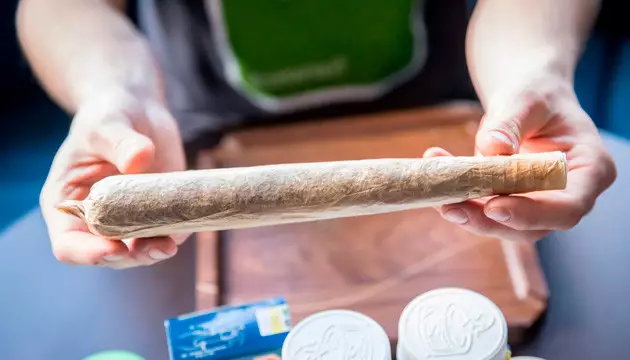
The term "overdose" applies pretty loosely here. In our minds, it typically means toxicity to the point of being fatal or nearly fatal. Although the level of THC needed to fatally overdose is impossibly high, you can still technically overdose on THC, but even that’s probably not what you imagine.
Fact
THC overdose occurs when you consume too much weed. Consequently, you'll experience things like dry eyes, cotton mouth, dizziness, paranoia, nausea, and even hallucinations (in severe cases). This experience is called "greening out", and can be easily avoided by introducing yourself to marijuana gradually.
Myth: Weed Stays In Your System For A Month
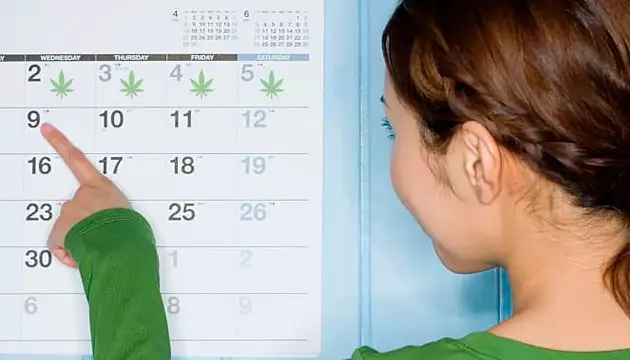
Among the many marijuana myths and facts, the claims about THC duration are far from absolute.
Fact
THC can stay in your system for 30 days, but this is far from universal. The amount of time it takes to clear depends on a few things. One-time consumption passes through within a few days. Semi-regular users will need a week or two. Heavy (daily) consumption could take a month or more to clear.
Weight – specifically fat – also plays a role. THC binds to fats, so the more fat that’s in your body, the longer THC lingers. However, regardless of usage rates or weight, the effects of THC last only a few hours, with edibles lasting the longest. Check out our full guide on how long THC stays in the system.
Myth: Marijuana Causes Cancer
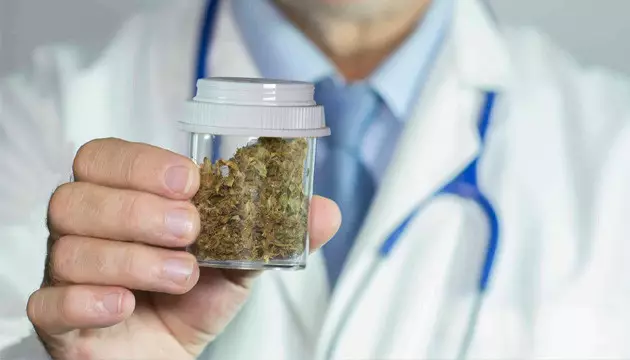
The idea that marijuana causes cancer comes from its association with smoking and, consequently, cigarettes. However, not only is this true, but one of the recently discovered facts about medical marijuana shows that it can potentially inhibit tumors.
Fact
Cannabidiol (CBD) is a major cannabinoid found in both marijuana and hemp – the latter of which is a source for legal CBD supplements. Recent findings show that this compound can literally shut down the mechanism by which tumors spread. Hemp is 99.7% CBD, while marijuana typically contains minimal CBD – although new high-CBD strains now exist thanks to the demand.
Myth: Marijuana Causes Crime
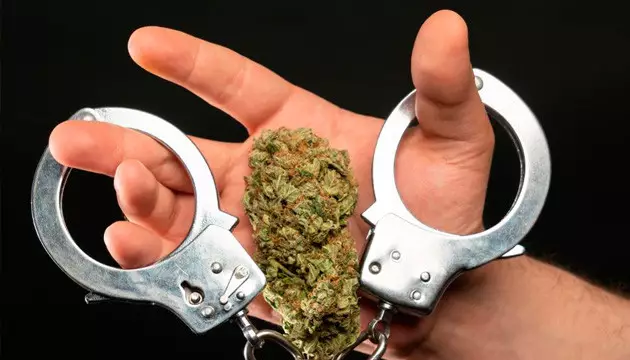
Although marijuana possession can land you in trouble with the law, most states will only slap you on the wrist. However, recreational marijuana is against the law in the majority of the U.S., so being caught with it can make you a crime statistic.
Fact
But does marijuana usage lead to violent or non-violent crimes? No. This distortion of marijuana facts is a classic example of how correlation doesn't equal causation. Criminals are more likely to use or abuse substances like tobacco, alcohol, marijuana or "hard" drugs. Drug consumption depends on their socioeconomic status, environment, education, attraction to risk-taking, and more. Regularly lighting up a joint won't cause you to start breaking the law (aside from the ones against cannabis).
Myth: Marijuana Is Addictive
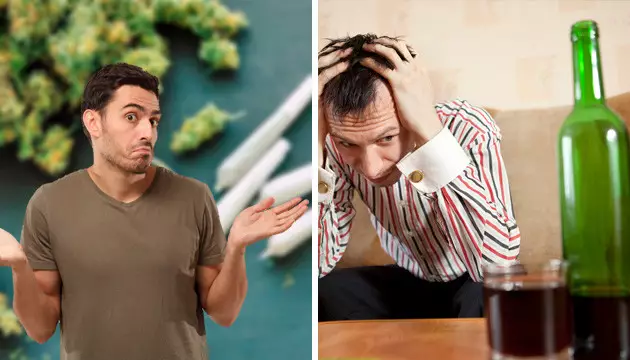
As the process of smoking marijuana is similar to that of smoking tobacco, and as cannabis considered illegal in many states and countries, plenty of people connect the wrong two dots and claim marijuana to be addictive.
Fact
However, it isn't – at least, not to the same degree as other illicit substances. Unlike alcohol or nicotine, cannabinoids naturally exist in our body's endocannabinoid system. THC is a phytocannabinoid (it exists outside the body), but is chemically similar to an endocannabinoid called anandamide.
In other words, THC tricks our cannabinoid receptors into thinking it's anandamide. You can't become physically addicted to a substance already endogenous to your body.
However, prolonged heavy use can lead to psychological dependency, which is known to involve withdrawal symptoms like irritability, insomnia and appetite loss. Nonetheless, these are minor and short-lived compared to withdrawal from cigarettes, alcohol or heavier substances.
Myth: Marijuana Is A Dangerous Drug
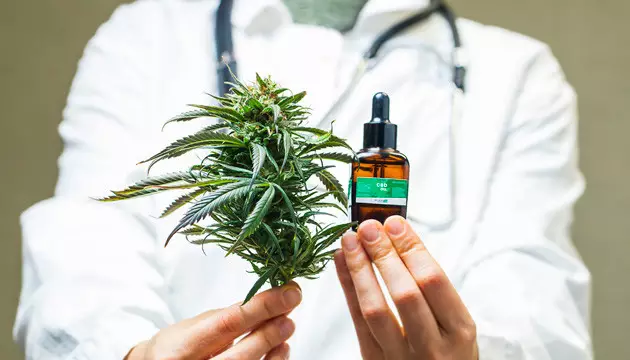
When discussing marijuana myths and facts, the topic of whether or not marijuana is dangerous often comes up. "Dangerous" is a broad term. Is marijuana as harmful as other illicit substances? Probably not. Of course, that doesn't mean it's completely safe, either.
Fact
On the surface, there is no scientific evidence of any significant long-term health concerns. However, people with certain conditions might be at risk. For instance, THC temporarily increases the heart rate, which can be a problem for those with heart conditions. Even so, marijuana is nowhere near as dangerous as propaganda claims.
Myth: Marijuana Kills Brain Cells
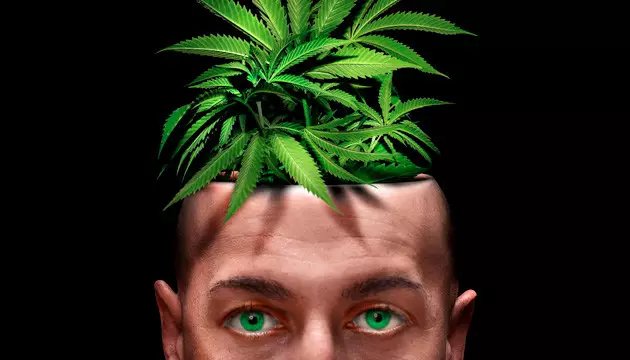
This is another myth we could blame on the stereotypical image of a ‘stoner’, who, let’s be honest, is barely ever represented as the smart one of the bunch.
Fact
Marijuana simply doesn't kill brain cells. Research suggests that certain cannabinoids and terpenes have neuroprotective properties, helping prevent diseases like Alzheimer's.
There’s also evidence that cannabis can speed up healing and mitigate damage following an injury to the brain from events like strokes, oxygen deprivation or trauma.
It's important to note that these findings were all found through animal studies. We need human trials for more definitive answers, but this is highly promising and well worth further exploration.
Myth: Marijuana Causes Memory Loss
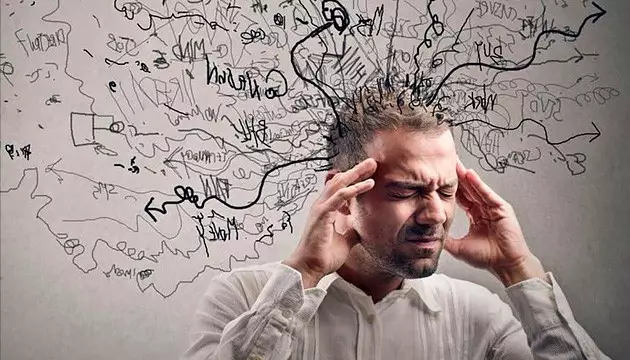
The feeling of confusion we get while high has led many people to the wrong conclusion of cannabis being detrimental to memory capacity.
Fact
Although THC intoxication does cause short-term memory impairment, this wears off within a few hours, along with the other effects.
Heavy users may experience longer-lasting memory issues. However, they regain these losses once they stop using marijuana for an extended period.
Myth: Marijuana Causes Mental Illness

As THC is a psychoactive cannabinoid that causes altered mind state, and extremely heavy doses of it may lead to anxiety and panic attacks, some people have come to the unjustified conclusion that weed is somehow directly related to mental illness.
Fact
There is no evidence that marijuana poses a significant or severe threat to mental health. Some research indicates that cannabis use makes youth more vulnerable to schizophrenia and psychosis. However, even in young men – the most affected group – the chances are 1 in 2,000, which equates to 0.0005% of those who are genetically predisposed to mental illness.
One of the facts about medical marijuana is that it constantly shows tremendous potential in treating a host of mental illnesses such as depression, anxiety, bipolar disorder and PTSD.
Final Comments
Despite decades of progress, marijuana remains one of the most misunderstood substances out there. Vilified by almost a century of propaganda and used as a tool for discrimination, the recent progress in countries like Canada and several U.S. states shows that the truth is slowly coming out. However, there’s a lot more work to do when it comes to debunking common myths and accurately conveying marijuana facts.
Herbies Head Shop expressly refuses to support the use, production, or supply of illegal substances. For more details read our Legal Disclaimer.



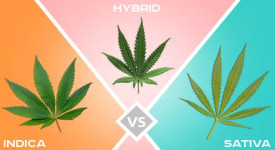


Thank you for leaving a comment for us!
Your feedback will be posted shortly after our moderator checks it.
Please note that we don’t publish reviews that: